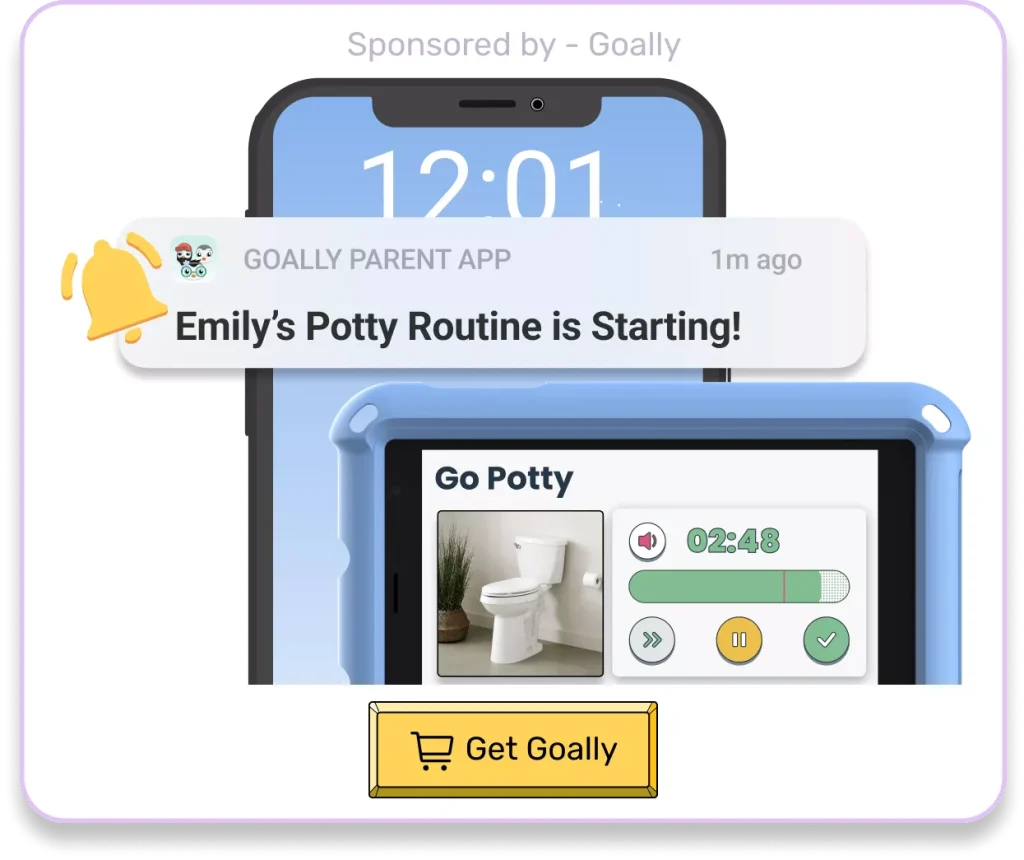Autism affects children of all racial, ethnic, and socioeconomic groups. Many people wonder, “Is autism a mental illness?” and what it means for their children. Let’s learn more about autism and how to support our fantastic neurodivergent kids.
Table of Contents
Autism: A Different Way of Thinking, Not a Mental Illness
It’s important to know the difference between mental disorders and mental illnesses. Mental disorders include a variety of conditions, like autism, which affects brain development and function. Mental illnesses are usually linked to emotions and mood. Autism is a neurodevelopmental disorder, not a mental illness.
Understanding the distinction between mental disorders and mental illnesses helps us better support our neurodivergent kids. By recognizing that autism is not a mental illness, we can focus on providing the appropriate resources and support for their unique needs.
Goally | Visual Scheduler for Autism
Does your child struggle with getting ready in the morning independently? Goally’s routine app on the best tablet for kids breaks down large tasks into small, achievable steps for autistic kids. Create custom routines with your own videos & pictures for every step.
What is the Autism Spectrum?
Autism is a spectrum disorder, which means it affects people in different ways. Some kids with autism have only a few challenges, while others need more help. Each child with autism is unique, and their experiences will be different.
Levels of Autism
- Level 1: Kids who need some support. These kids may have trouble with social skills and might repeat behaviors. They can learn from special help to improve their social and communication abilities.
- Level 2: Kids who need more support. They have more challenges with social skills, communication, and repetitive behaviors. These kids benefit from more structured help in their daily lives.
- Level 3: Kids who need a lot of support. These children may have a hard time with communication and social skills. They often need intensive support throughout their lives.

Read more: Can Kids With ADHD Still Be Smart?
By understanding the different levels of autism, we can better tailor our support strategies to suit the needs of each child.
Myths About Autism
There are many myths about autism that can be confusing. Let’s clear up some common misunderstandings:
- Myth: Autism is a result of bad parenting.
- Myth: All kids with autism have special talents.
- Myth: Kids with autism don’t want friends.
By debunking these myths, we can develop a more inclusive and supportive environment for our neurodivergent kids.

Read more: How Do Kids Get Autism?
Helping Your Neurodivergent Child
As a parent or caregiver of a child with autism, you can help them thrive. Here are some tips:
- Early help: The sooner kids get help, the better their chances of success. If you think your child might have autism, talk to a professional and learn about ways to help them.
- Learn about autism: The more you know about autism, the better you can help your child. Stay updated on the latest information and treatments.
- Stand up for your child: Be your child’s biggest fan, and make sure they get the help and support they need in school and other places.
- Find a support group: Connect with other parents and caregivers of neurodivergent kids. Share experiences, resources, and encouragement.
- Encourage their strengths: Help your child explore their interests and develop their skills. This will help them feel good about themselves and be successful.
By following these tips, you can make a positive impact on your child’s life and help them reach their full potential.
Goally | Apps To Support Child Development
Looking for fun ways to help your child learn life skills? Try Goally! The Goally tablet comes with award-winning learning apps and video classes to help kids develop the skills they need to become independent with FUN & evidence-based practices.

Our apps teach executive function, language, emotional regulation, finger dexterity skills, and more.
As your child develops new skills, you can increase the difficulty level of the tasks in the app to challenge and motivate them even further. This helps your child grow and progress at their own pace, while also keeping them engaged and excited about their development.

| Term | Definition |
|---|---|
| Neurodivergent | A term used to describe people with autism and other thinking and learning differences. |
| Neurotypical | A term used to describe people who do not have autism or other thinking and learning differences. |
| Neurodevelopmental Disorder | A group of conditions that affect how the brain develops and functions, including autism. |
| Mental Illness | A group of conditions that affect a person’s emotions and mood, which are different from neurodevelopmental disorders like autism. |
Celebrating Neurodiversity
To answer the question “Is autism a mental illness?”: no, it is not. Autism is a neurodevelopmental disorder that makes our world more diverse and interesting. Supporting neurodiversity means valuing the unique strengths and contributions of people with autism and other thinking and learning differences. As parents and caregivers, we can help our neurodivergent kids by understanding and encouraging them. With the right support, they can overcome challenges and achieve great things. By embracing neurodiversity, we celebrate the incredible achievements of our children and help them navigate their unique journeys.
This post was originally published on 04/21/2023. It was updated on 09/05/2023.

Goally
We help parents teach their kids life skills, like doing bedtime and morning independently. Backed by science, we incorporate evidence-based practices and expert-informed designs in all of our apps and content.






